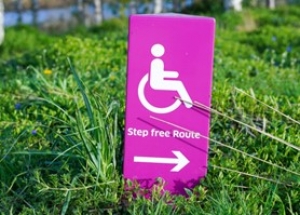Disability advocacy groups are calling on the government to boost funding for adult social care and raise the pay for care workers to improve the hiring and retention of staff. This plea follows the release of the King’s Fund’s Social Care 360 report, which shows a record two million requests for adult social care, with a growing gap between those seeking help and those receiving it.
The report outlines the increasing costs for local authorities in providing care, with notable hikes in weekly fees for adult care and hourly rates for home care services. Despite a slight reduction in vacancy rates, primarily due to the recruitment of overseas workers, proposed restrictions on overseas workers could exacerbate staff shortages.
The King’s Fund emphasises the urgent need for government action to address the sector's challenges, including better funding and support for care providers to hire and train staff. Steve Veevers, CEO of Hft (a learning disability charity), echoed these concerns, highlighting the sector’s high vacancy rates and the financial struggles faced by care providers due to insufficient funding and lack of government action.
Veevers advocates for a long-term funding plan that includes adequate compensation for care workers, reflecting the significance of their work. He urges the government and its successors to prioritise investment in the social care sector to alleviate the burden on providers and ensure individuals requiring care receive the necessary support.
The Chancellor Jeremy Hunt recently presented the 2024 Spring Budget, focusing on stimulating economic growth. However, disability advocates argue it neglects the needs of millions, including disabled individuals and unpaid carers. Despite a £105m boost for Special Educational Needs and Disabilities (SEND), critics argue the Budget lacks comprehensive support for vulnerable groups.
Key highlights of the Budget aimed at economic enhancement, including a reduction in national insurance contributions from 10% to 8%, maintaining public spending growth at 1% above inflation, and revising child benefit policies to potentially consider household income. It also extends support for families amid the cost-of-living crisis and introduces measures benefiting small businesses and the arts.
Nonetheless, the absence of significant investment in social care has drawn criticism. The Voluntary Organisations Disability Group (VODG) has expressed disappointment over the lack of attention to social care funding, warning of the adverse effects on disabled and older individuals. The VODG has called for a substantial increase in social care fees to sustain the sector.
Carers UK highlighted the Budget's failure to address the challenges faced by unpaid carers, emphasising the financial strain and lack of support that exacerbates their hardship. The charity advocates for an increase in Carer's Allowance and the introduction of a Work Allowance for carers on Universal Credit, stressing the need for government action to alleviate carer poverty.
A new initiative called ‘Autistic and OK’ has been unveiled by a coalition of charitable foundations, focusing on improving mental health and reducing absenteeism among autistic students in state secondary schools. Studies indicate that out of approximately 70,000 autistic students in these schools, around 20,000 are consistently absent, missing at least 10% of the school year.
This free toolkit, tailored for 11-17-year-olds, has been developed after a successful pilot in 19 schools. By enabling teacher-led and peer-supported sessions, it seeks to prevent autistic students from reaching a crisis point, foster acceptance within school communities, and tackle issues directly affecting autistic students such as anxiety and bullying.
Megan, a 24-year-old autistic youth advisor involved in developing the program, shared her own struggles with anxiety during her secondary education, leading her to avoid school. She believes this program can significantly improve understanding and acceptance of autism within schools.
Jolanta Lasota, the Chief Executive of Ambitious about Autism, expressed her optimism that this innovative program, developed with and for autistic students, will foster a more inclusive and supportive school environment.
A survey by Oak Tree Mobility reveals that 25% of disabled and elderly UK residents avoid public transport due to poor accessibility. The study highlights several obstacles, including difficulties in boarding trains (60%), accessing stations (44%), and navigating stations (40%). Moreover, over half of the respondents lack confidence in planning journeys due to inadequate accessible information.
Inaccessible transport significantly affects the disabled, leading to social isolation and increased financial strain. Many are compelled to rely on taxis, incurring additional costs. According to Scope’s 2023 report, disabled households require an extra £1,122 monthly to maintain the same standard of living as non-disabled households.
Verity Kick from Oak Tree Mobility emphasises the necessity of prioritising accessibility in public transport planning, advocating for a balance between recognising advancements and addressing existing gaps to ensure inclusivity.
Oak Tree Mobility calls for the implementation of the government’s Inclusive Transport Strategy, which includes raising awareness of passenger rights, training staff in disability awareness, learning disability awareness, enhancing accessible information, and booking systems, and improving infrastructure. These measures aim to promote social inclusion and equality, underscoring the urgent need to make UK public transportation accessible to all.






